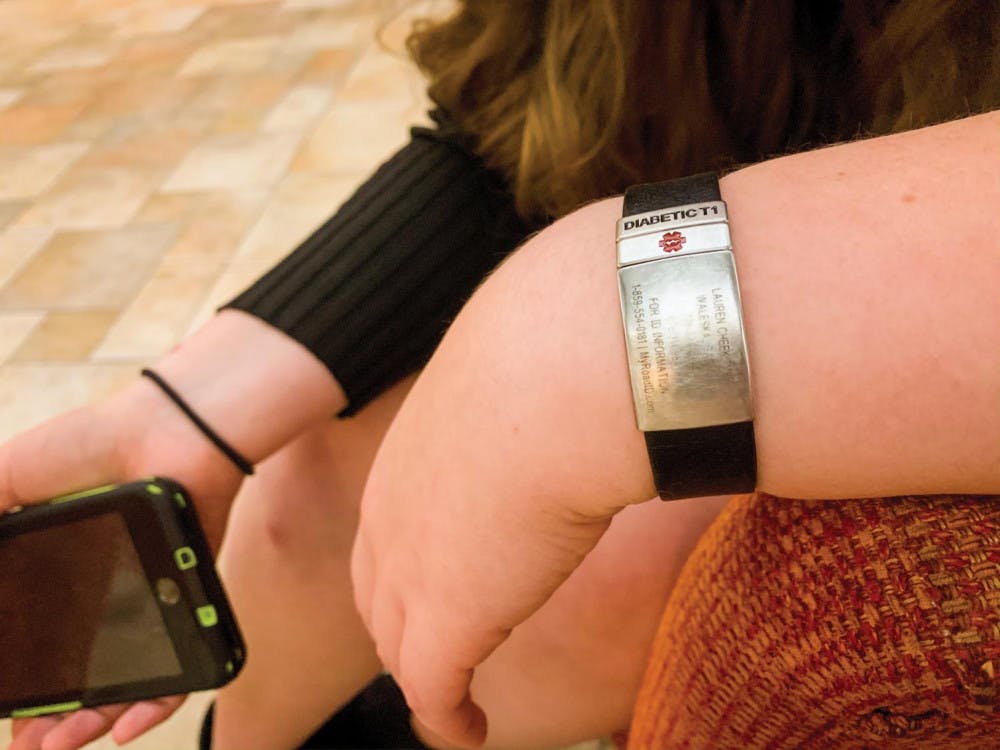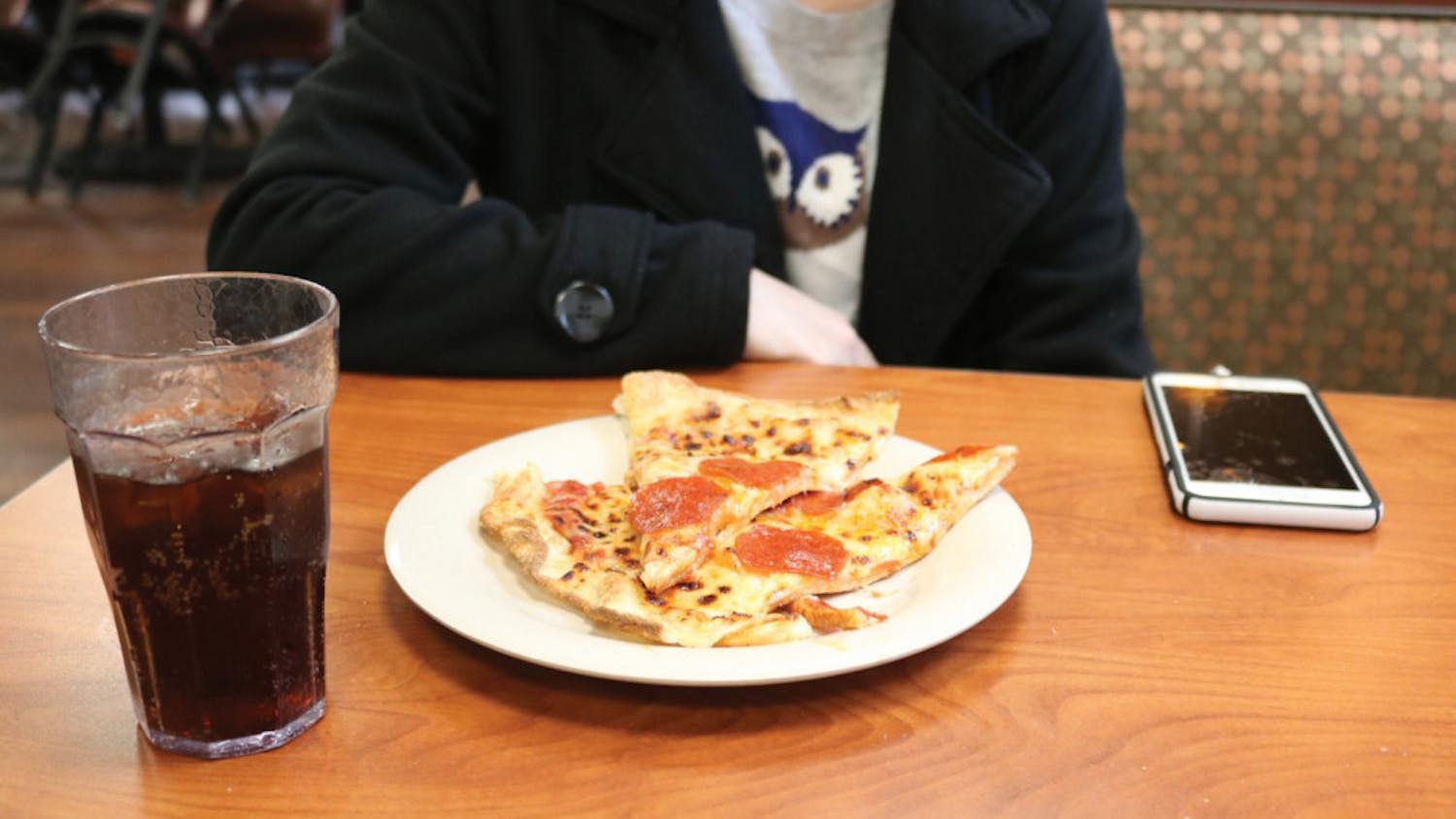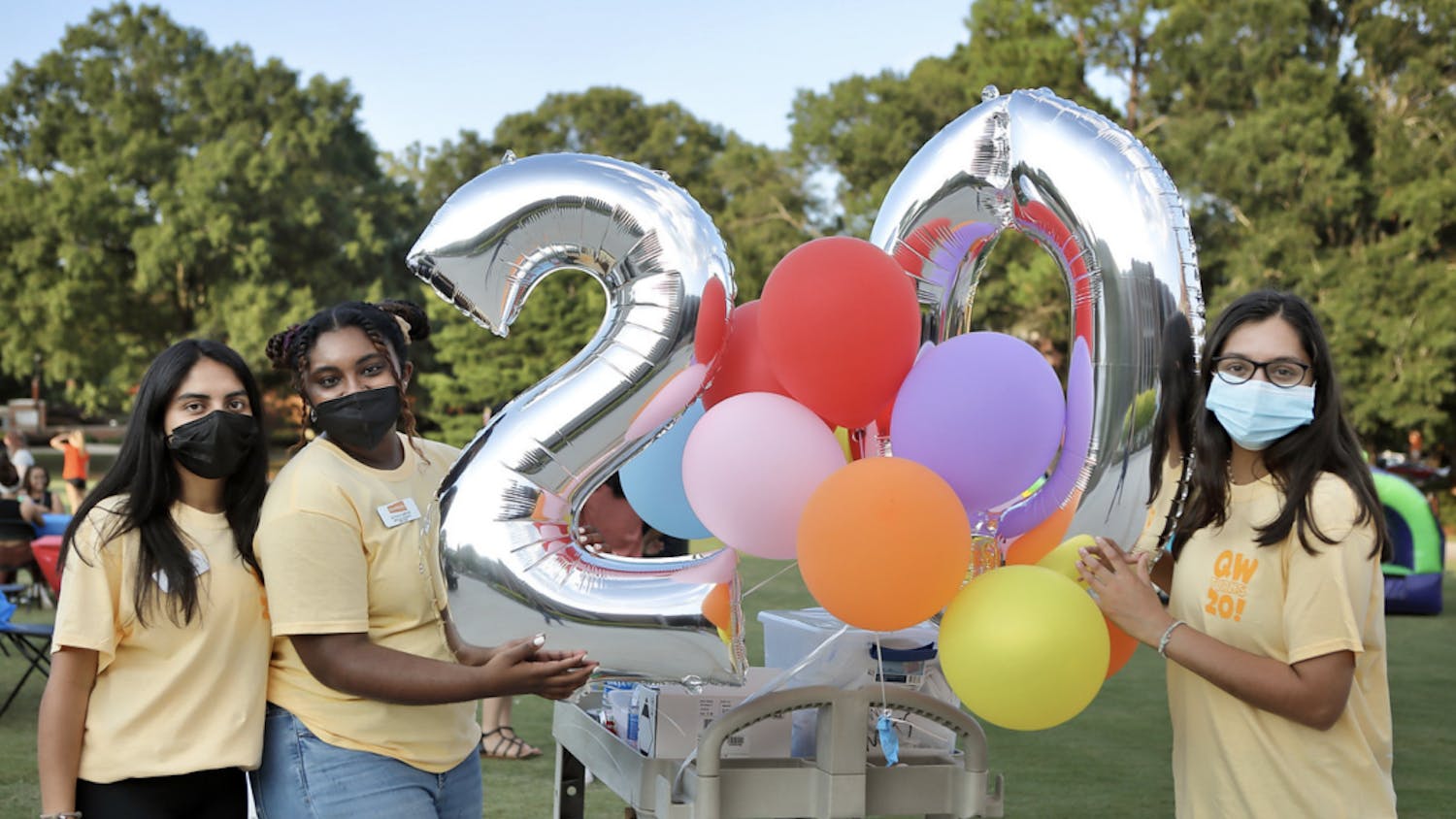In high school, Lauren Cheek, a current junior studying biology at Mercer, was a good student who was known for thriving in the classroom. She did her due diligence, got straight A’s and, as a senior, was preparing to apply for college. However, she and her family began to notice some changes.
She had been feeling unwell for a few months. She experienced weight loss and fatigue and began to lose motivation to finish her schoolwork. At first, her family mistook it for depression.
“I just had no willpower or motivation to do any work,” Cheek said. “I would come home and just sleep. I would go to class and tell myself, ‘Okay, Lauren, if you take notes for the first fifteen minutes, you can just zone out for the rest of it’ because I couldn't get through much more than that.”
Her mom also noticed that she began to smell like alcohol, “like nail polish, rubbing alcohol, liquor alcohol,” Cheek said. “A couple of times, she'd be like, have you been painting your nails? And I was like, no. And my mom knows I don't drink.”
At that point, her mom took to the web to figure out what was going on. She learned that the alcohol smell could be a symptom of diabetes.
She contacted a friend who has a diabetic daughter. After describing her symptoms, Cheek said that her mom’s friend told her to immediately check her out of school and take her to the hospital.
Her mom promptly took Cheek to an urgent care clinic, where she was held for over 4 hours for blood tests, then transported via ambulance to Children's Healthcare of Atlanta.
She said she knew that things were serious when she and her mom pulled up to the hospital, and she got a glimpse of her dad red-faced.
“I could tell he just been crying. I'd never seen my dad cry. Seventeen years of my life, I had never seen him cry,” she said. “Regardless of IVs and ambulance and anything, that's what made it hit.”
Cheek was diagnosed with diabetes during the fall of 2017, which would ultimately change many aspects of her life.
According to the Centers for Disease Control and Prevention, 30.3 million people in the U.S. have diabetes, which is 9.5% of the U.S. population. Of those people, nearly 24% have gone undiagnosed.
There are two primary forms of diabetes: Type 1 and Type 2. Cheek has Type 1, which is far less common than Type 2. The CDC reports that only 5% of those with diabetes have Type 1.
Currently, there is no cure.
When it comes to explaining what diabetes is, Cheek offers a simple anecdote.
“My immune system thinks that the cells that produce insulin … were foreign invaders, and so the immune system does its job, and it attacks the cells and kills them,” she said. “But unfortunately, they weren't foreign invaders.”
She describes Type 1 as “having a light switch in your DNA that at some point will flip. And you don't know when.”
Anyone can be diagnosed with diabetes at any point in their life, and it does not matter if they’re 8 years old or 80 years old.
Upon diagnosis, Cheek had to make some serious and immediate changes to her lifestyle. She had to get used to being mindful of what she eats and monitoring her blood sugar. Cheek has a device called a continuous glucose monitor that takes readings of her blood sugar through a patch on her arm, then sends the readings to an app on her phone. She also uses a tubeless insulin pump which is connected via Bluetooth to a device that “looks a little bit like the world's oldest phone or a GPS,” Cheek said.
A CGM can be a game-changer for someone who has diabetes. According to WebMD, “it can help detect trends and patterns that give you and your doctor a more complete picture of your diabetes. The data can help you find ways to better manage your condition.” However, Cheek was incredibly lucky to get one so soon after diagnosis.
“I got my CGM six months into diagnosis. That's pretty early,” she said. “I know people who have been diabetic for five years and they're still waiting on insurance approval. I got my insulin pump probably about nine months in. I have really good insurance. I was really lucky with the speed that I was able to get it.”
Despite the positives of a CGM, it is not a perfect device. Cheek noted that her CGM has failed before, which could be the difference between a safe night of sleep and a fatal accident. “I used to go to sleep, and every single night I would lay there and think, ‘Maybe this is the night that I don't wake up. Maybe this is the night my mom comes in to my room in the morning to wake me up for school. And I'm dead because I just don't know.’ And that was very scary for my parents,” she said.
She also had to begin thinking ahead. If anything unexpected happens, she has to be prepared.
“I was never a wild child before this, but you lose the ability to be spontaneous,” Cheek said.
She recalled an instance where being diabetic held her back from enjoying time with her friends. Cheek was traveling to a friend’s birthday party when she accidentally knocked off her insulin pump.
“I… didn't have an extra one. So, I didn't get to eat for the rest of the time,” she said. “I worry that my friends will think I'm, like, ruining the fun. And it's just hard to not be as carefree as I used to.”
In terms of Cheek’s day-to-day life, it looks similar to any other person’s life but with more nuances.
“You get up, you eat food. But before you actually get to eat any food, you have to do math for it, because for me, every time I eat is algebra. I have an insulin to carb ratio,” Cheek said.
Her academics can be an entirely different struggle. Having diabetes means pushing through the day even if she feels sick.
“I get to try and pay attention, take quizzes and tests. And it's hard to focus. It's hard to pay attention. It's hard to be a student. It's hard to do work. It's hard all the time,” she said.
Something as little as a milkshake, a frequent guilty pleasure that most students partake in, can throw everything off course for her.
While studying in the UC for a chemistry test during her freshman year, Cheek drank a milkshake and dosed what she thought was the correct amount of insulin. However, dosing for insulin is a constant guessing game, and her blood sugar lept too high. At that point, she contacted her professor to push the test back because of how sick she felt.
Working with professors can be a struggle, especially because Cheek has to be able to check her phone in class to monitor her blood sugar.
“It's a continual surprise to see every semester which teachers are going to be the ones who work with me and which ones are the ones who work against me,” she said. “But, you know, my rules trump yours, and that's hard for some teachers.”
Luckily for Cheek, she said that she has a solid support system that walks alongside her through all the difficult moments.
“I was in the hospital when I was diagnosed for a few days, and it made it easier having my family around, and they were willing to learn everything,” she said.
Her CGM phone app allows family and friends to follow her blood sugar. If her blood sugar is abnormal for a while, she said they will often send her a text to make sure everything is okay.
“They've supported me. Never pressured me,” she said. “ They always just make sure I know that they're there, if I need them, which is all that I could ever want.”
[pullquote speaker="Lauren Cheek" photo="" align="left" background="on" border="all" shadow="on"]It's sleepless nights and working through accommodations and crying on the phone with my mom because I feel terrible. The quote about like, everyone's fighting a battle you don't see? Everyone has something that's going on with them that's behind the scenes that you don't know. And I think that's especially true for Type 1.[/pullquote]
Her support system is always there for her if she needs it, but Cheek has smaller battles that she has to fight on her own.
Dealing with ignorance surrounding diabetes can be challenging, she said. “People come up to me — strangers, people I've never even seen before — who get up in my personal space and go, ‘what's that weird thing on your leg?’”
Cheek said that she is always okay with questions, but some comments or quips can come off as insensitive, especially if they are made without knowing anything about the disease.
On the contrary, she said that she tries to make light of her situation as best she can, but the key is knowledge and consent. “I have a friend who, every time she sees me pull out my insulin pump. She goes, ‘Oh, how's your Tamagotchi?’ And I think that's hilarious,” she said. “I just think the difference is when the joke line is, ‘haha diabetes’ is… funny, but laughing with me versus laughing at it.”
What Cheek wants people to understand is that Type 1 is so much more than it may appear on the outside, even if she may act like what she’s going through it okay.
“It's sleepless nights and working through accommodations and crying on the phone with my mom because I feel terrible,” she said. “The quote about like, everyone's fighting a battle you don't see? Everyone has something that's going on with them that's behind the scenes that you don't know. And I think that's especially true for Type 1.”
November is National Diabetes Month, “a time when communities across the country team up to bring attention to diabetes,” says the National Institute of Diabetes and Digestive and Kidney Diseases. To learn more, visit their webpage for this month or the American Diabetes Association website.
Mary Helene Hall ‘23 is a journalism and women’s and gender studies student who has worked for The Cluster throughout her time at Mercer. She has held internships at The Atlanta Journal-Constitution and AL.com, where she covered a variety of topics including politics, crime and culture.





